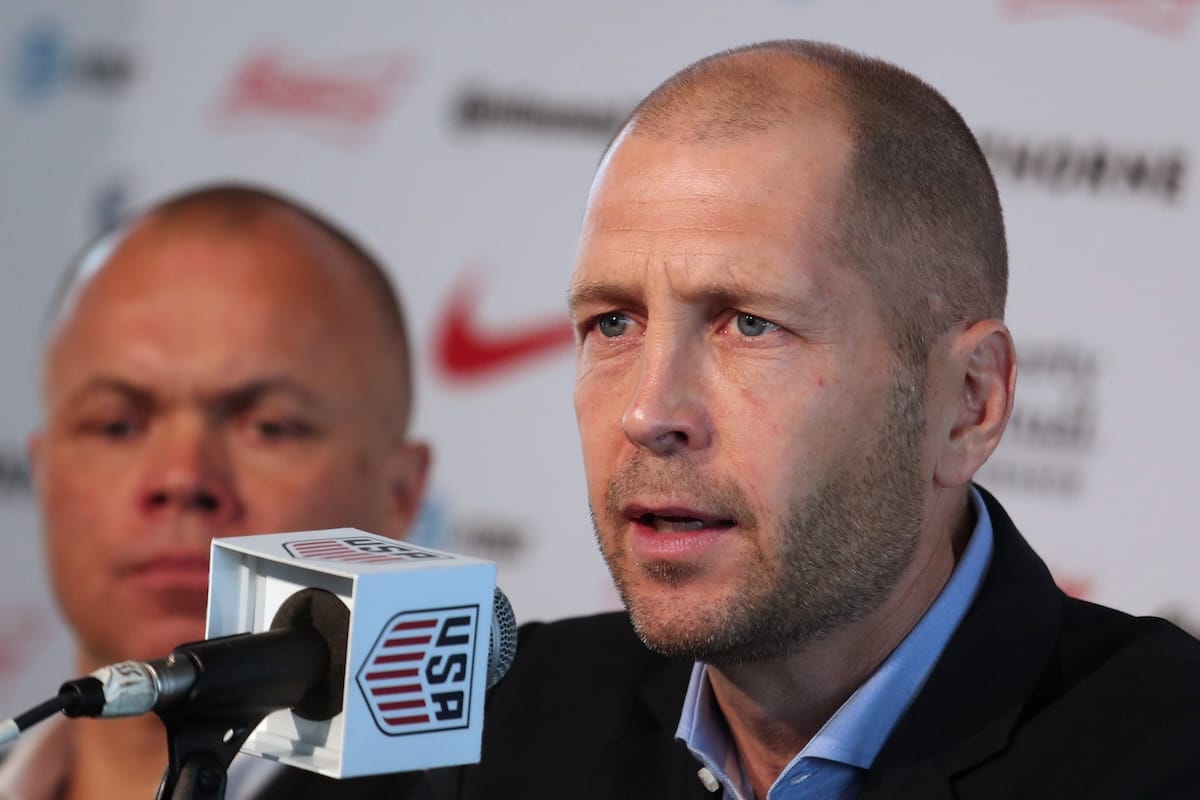Seated between his bosses at a small table in New York City, Gregg Berhalter looked up and into a crowd of media members.
It was his first press conference after being named manager of the U.S. men’s national team. To Berhalter’s right sat then-U.S. Soccer president Carlos Cordeiro and men’s national team general manager Earnie Stewart. To his left sat CEO Dan Flynn. Months removed from the pain of watching a World Cup unfold without the USMNT, it was time for a new era — and Berhalter was picked to conduct it.
On this chilly December day, the New Jersey native was given a chance to articulate his stylistic vision. Berhalter had this to say:
“The idea is that we’re an attacking based team that wants to create goal scoring opportunities by disorganizing the opponent,” Berhalter said before reminding the audience of how his Columbus Crew teams committed to building from the back even under intense pressure . “We want to see ball circulation, breaking lines, creating goal scoring opportunities. That should be the DNA of our team,” he added moments later.
Berhalter referenced defensive pressure and transition play as valuable tools, but the emphasis was clear: his new-look USMNT would commit to using the ball.
Just over a month later while conducting camp with the U.S. for the first time, he doubled-down on that emphasis. "I think the philosophy will be very similar [to the Crew]. We want to use the ball to disorganize the opponent and create goal-scoring opportunities," the U.S. boss said. In his debut on the sidelines, which came in a friendly against Panama in January, 2019, Berhalter stayed true to his word.
The U.S. used a 3-2-5 shape in possession, controlled 66% of the ball, and pulled out a couple of fluid rotations.
— _ (@21LBRB) January 28, 2019
With their new-found detailed possession play, the USMNT had a style that would help them climb back up the international ladder after the failed 2018 World Cup cycle.
…right?
More than 2,000 days later, Berhalter looked up into another crowd of media members from his seat at another small table.






